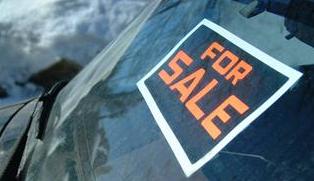|
|
 |
|
|
|
|
|
|
|
Public or Private |
|
 |
|
|
Editorial
 |
Public or Private
Long has the debate of repossession liquidation methods raged. There seems to be two disciplines of thought on the subject. One the public side is the maximum sales value and, on the private side, the consistency and compliance consideration. While I don’t propose that I have the answers to what is best, I do know that I have tried almost everything. | Public Sales
At the top of the list of reasons against selling to the public is, the legal notification requirements. While it is really not a big deal to advertise the pending sale, it is just another step that needs to be taken and to those who prefer expediency, an annoyance. Real close to that is, dealing with the public. While it may be assumed, the public is less sophisticated in repo sales valuations; they are certainly much wiser than in years past. The litigious potential that they present is always a consideration and regardless of these issues, there are always multiple methods of public sale available.
An enterprising effort attempted by a sub-prime lender I once worked for, before I saw the light and came to the Credit Union world, was to run their own used car lot. As it was, we had in our employment a gentleman, and I am using that word loosely, with a fair amount of experience in that line of work. We received sales values often equal to what the loan balance was. The drawbacks were the length of time it took to sell the cars and the offsetting expenses and liability of preparing a vehicle for public sale. After a couple of years, this enterprise was scuttled.

Retailing repossessions through existing dealers is a very common practice but, the problems of timely sale play into his as sometimes a car can linger for months with no sale and “lot rot” sets in. After awhile reconsiderations of value come into play and before too long, you’re wondering if you would have been better off blowing it out at a private auction. Nevertheless, you don’t want to go through the NOI waiting period all over again so, you just let it sit and hope it sells. Next thing you know, you’re down to, or below wholesale value.
On top of all of this are the numerous class action lawsuits that pop up from time to time surrounding the reasonable sales method argument used by so many consumer law attorneys. Another problem area is public auctions. Many of these proliferated in the industry in the late 90’s and even up to now. Most of these were shells for used car dealers who rigged the bidding to squeeze the public into higher bids. While most reputable lenders shied away from these, those that did usually found that the dealers were quick to conspire against bids that would exceed a sub wholesale value. Lenders needed to watch these operations like a hawk and usually found out they weren’t worth the time and effort.
In California in the mid 90’s we had the infamous “Leilana vs. Bank of America” decision that cost banks and Credit Unions millions to settle. This decision revolved around a reputable and commonly used private, auction in northern California. While private by legal definition, they did allow from the public Credit Union members and persons eligible to become members. Obviously, you can’t throw a rock without hitting someone who fits this definition. In this, the problem lied and confusion amongst the collections community was prevalent. Lenders frequently sent notifications out that were stating this to be a public sale, which it was not. Unfortunate for the auction, many lenders blamed the auction rather than themselves and the auction suffered a warrantless and temporarily tarnished image for several years.
|
Private or Auction Sales |
 Obviously, this is the most commonly practiced method for liquidation and most understood, but it is not without its own perils and problems. Having in my youth worked at a large auction as a “Ring Man”, I got a first-hand education in the behind the curtain dealings of some auction houses. While I know these are not common problems, they do happen all the same. Love them or hate them, the auction houses sell to car dealers. They are an unavoidable evil of the lending world and you need to know how to dance with the devil to keep from getting burned. Obviously, this is the most commonly practiced method for liquidation and most understood, but it is not without its own perils and problems. Having in my youth worked at a large auction as a “Ring Man”, I got a first-hand education in the behind the curtain dealings of some auction houses. While I know these are not common problems, they do happen all the same. Love them or hate them, the auction houses sell to car dealers. They are an unavoidable evil of the lending world and you need to know how to dance with the devil to keep from getting burned.
From time to time, a dealer will over bid on a vehicle just to get it off the auction block only to claim vehicle damage and request arbitration. While sometimes, the lender can ask the auction to see if they can find the earlier bid and unwind the first sale, more often than not they have to concede to the dealer or unwind the deal, have the problem investigated, fix it if it exists and postpone the sale for another week. This is annoying, but not a total disaster. Regardless, you don’t want your collateral depreciating from overexposure otherwise known as “lot rot.”
Believe it or not, dealers will sometimes sabotage vehicles to make them run poorly, or not at all. The objectives for this are either to disinterest the other dealers in the vehicle so they can get it below the floor price or, to increase interest in a similar vehicle they are selling. This usually only occurs in auctions that run dealer consignment sales simultaneous to repossession and fleet sales.
Another common problem at large auctions is theft and damage. While the auctions are insured, low paid and overworked lot personnel, have been known to hot rod or damage vehicles without reporting it. Theft of silly things like tire jacks or items as big as airbags can occur from lot boys working for the dealers who are always looking for a way to save a buck. |
 
Now that I’ve slammed the two methods of sale, let me caveat my editorial with these pieces of advice.
Do your diligence. Know the people you’re selling your car through or have someone you know, or even yourself if you can do so unrecognized; visit the dealer to see what they are like to the public. Check their BBB standing and public records for pending or outstanding lawsuits. Follow the UCC (and Reese Levering Act if in California) to a “T.”
If you are going to use and auction, check out the auction on an auction day just to see how orderly they are and, if possible, always have representation there. It makes a big difference when the auctioneer knows the lender is on the floor or at the bench. Be sure to check on your inventory before it hits the block to make sure its condition has substantially changed.
Often liquidation method decisions are made from the Executive level and as a collector or manager; you have little or no say in the matter. Often it is the Board of Directors or even the VP of Lending that likes the idea of selling your cars back to your members. While you can warn them of the perils, you will not usually sway their feelings on this. Even if your organization views these matters conservatively and prefers the auction house liquidation method, it is never as simple as you think. You had better know this part of the business and know it well.
If your department has a seasoned and practiced repossessions specialist, you are blessed. If not, you’d better become one or get one. The cost of not knowing this end of the business is massive. Ignorance is costly.
K.W. Armstrong
Editor, CUCollector.com
| |
|
| |
 | |
|
|
|
 |
 | | |
|
|
|
|
|
|
|
|
|
|
|
|
|
|
|

Copyright © 2010 CUCollector.com All Rights Reserved. |
|
|
|
|
